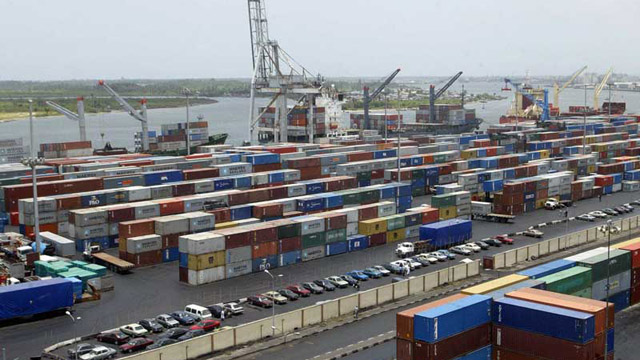
Widespread corruption in the maritime sector has been described by stakeholders as a major stumbling block to harnessing the huge opportunities within the nation’s port sector, as it chokes domestic trade and inflicts high cost of goods on citizens.
No wonder the latest report by the Maritime Anti-Corruption Network (MACN) revealed that corruption adds about 15 per cent to the cost of importing food and bulk products into Nigeria.
The study reveals that corruption adds $147,000 per import shipment of grain and more than $187,000 per shipment of petrol with food and petrol.
It further alleged that government officials are extracting bribes for routine tasks, causing economic damage through ship delays and higher trade costs, as well as endangering the wellbeing of seafarers through exposing them and others to the risk of criminal prosecution.
Assuming that all bribery requests during vessel clearance are met without resistance from the private sector or government, the MACN report stated that corruption costs for importing food and bulk products into Nigeria exceed $162 million per year.
“With 63 per cent of Nigerians, or 133 million people, classified as multi-dimensionally poor, increased costs due to corruption are likely to reduce household demand and make essential goods less affordable for the average family,” it stated.
According to the report, the cost of corruption adds about one to two percent to retail prices for grain and petrol. This results in less consumption and sales, negatively impacting Gross Domestic Product (GDP), tariffs collected by Customs, and job creation.
“Maritime corruption results in an annual reduction in GDP of $204 million; an annual reduction in revenue collected by Customs of $42 million; and 235,000 fewer Full-Time Equivalent (FTE) jobs due to reduced sales and economic activity.
“The total economic damage of maritime corruption is likely to be much higher. If similar costs of corruption apply to container imports, the economic damage of maritime corruption will be more than double” the study stated.
Highlighting the impact of MACN’s current anti-corruption initiatives, it stated that through industry commitment and proactive government measures, significant progress has been made in reducing corruption within the Nigerian port sector.
“Before 2019, resolving a single bribery case took seven to 10 days. Current data shows that over 90 per cent of corruption incidents addressed through MACN are resolved within 24 hours by the relevant government agency in Nigeria,” it stated.
Source: